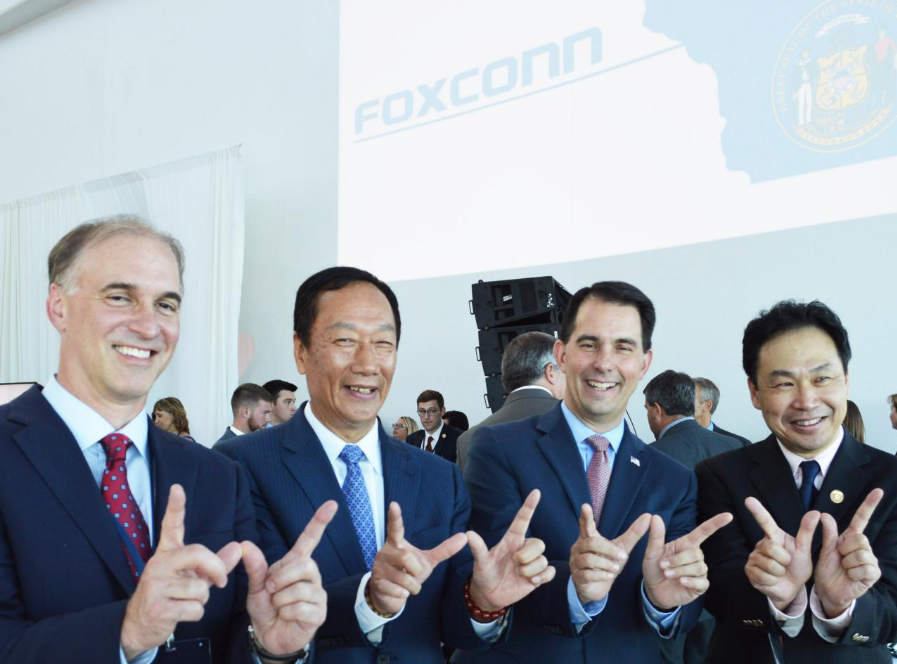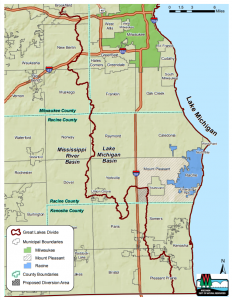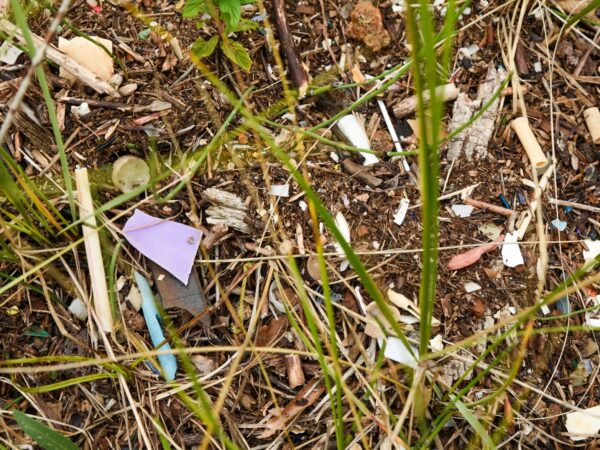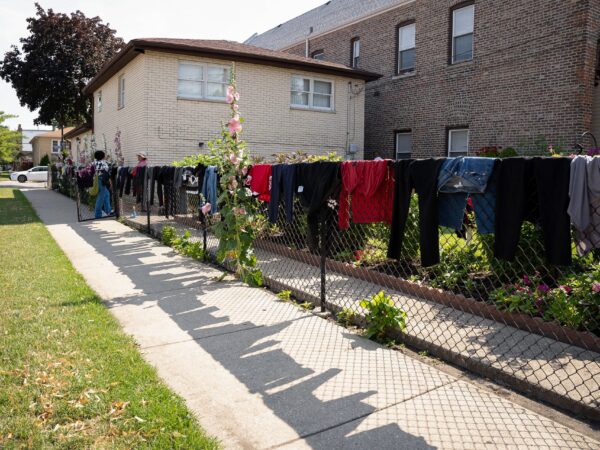
Is Wisconsin moving too fast to tap the Great Lakes?
Moving quickly after a March public comment session, Wisconsin last week approved a diversion of Lake Michigan water for a portion of the village of Mt. Pleasant that will be home to Foxconn Technology, the Taiwan manufacturer of high-tech electronic products.
The diversion of seven million gallons daily was approved by the Wisconsin Department Natural Resources under what is known as a “straddling community” provision of the Great Lakes Compact, the eight-state agreement that governs diversions.
A straddling community is one that rests on the divide between the Lake Michigan and Mississippi River basins.
Unlike Wisconsin’s high-profile Waukesha decision, a straddling community diversion does not require approval from other Great Lakes states.
Waukesha is in a county that straddles the basin divide, but a controversial provision of the compact allowed it to apply for Lake Michigan water. The straddling county provision is a construct with no basis in the geography of the region.
Foxconn announced its decision to locate the production facility in southeast Wisconsin in October 2017 after the state approved a multi-billion dollar subsidy package. The plant could create as many as 13,000 jobs, according to Gov. Scott Walker’s office.
Public sentiment against diversions
Any diversion of Great Lakes water is sensitive, and the March public comment session drew an overflow crowd, the majority of whom spoke against the diversion, Wisconsin DNR spokesperson James Dick tells Great Lakes Now.
Business interests and the City of Racine, which borders Lake Michigan and will supply water to Mt. Pleasant, made the case for the diversion.
“Public water for private gain”
Environmental groups opposed the diversion saying the compact requires a diversion to be for public purposes, which would exclude Foxconn.
Under a heading on its website “Public water for private gain,” Clean Wisconsin’s Ezra Meyer said “this proposed diversion does not meet the letter or spirit of the Great Lakes Compact. Racine’s application is clear in stating that none of the diverted water from Lake Michigan would be used for public purposes, as required by the Compact and state law.”
DNR spokesperson James Dick said Mt. Pleasant, long before Foxconn was in the picture, had discussed developing the Foxconn location site and “needing Lake Michigan water to do it.” Dick said a “substantial portion of the village was already served from the Racine system.”
The Wisconsin DNR’s decision to go against public sentiment is similar to that of Michigan’s Department of Environmental Quality on the Nestle bottled water issue.
Public comments were overwhelmingly against allowing Nestle to take additional groundwater but the DEQ gave Nestle the permit saying it was required by law.
States reviewing the decision
Two key Great Lakes states reacted cautiously neither praising or challenging Wisconsin’s decision.

Jon Allan, Director of the Office of the Great Lakes, courtesy of mi.gov
Michigan’s Jon Allan told Great Lakes Now that “we take all (diversion) proposals very seriously” and that Michigan is examining Wisconsin’s decision. He said the state would work with the other Great Lakes states “in a manner that honors the letter and spirit” of the compact.
Allan directs Michigan’s Office of the Great Lakes.
Minnesota’s Julie Ekman said “we will be reviewing Wisconsin’s action and discussing Compact-related considerations with the other states and (Canadian) provinces.”
Ekman told Great Lakes Now that Wisconsin had notified the other states of the Racine/Foxconn diversion application “but Wisconsin did not consult with Minnesota prior to taking yesterday’s action.”
Ekman represents Minnesota on Great Lakes issues for the state’s DNR.
Michigan and Minnesota were the critical states and toughest reviewers of Wisconsin’s Waukesha diversion application.
The Great Lakes Compact contains a provision that allows for a regional review of a diversion request that is “significant or precedent setting.” A simple majority, five states, could request the review.
Wisconsin’s James Dick told Great Lakes Now that a regional review of this diversion application was not a requirement but, “Wisconsin would of course cooperate with a regional review if it were undertaken” by the other states.
The diversion will be the third for Wisconsin since the compact was enacted in 2008. No other state has made a diversion request.
“Great Lakes for Sale”
Long-time Great Lakes policy adviser Dave Dempsey said if permitted under the compact “the states must insist on a regional review.”

Dave Dempsey, FLOW Senior Adviser, courtesy of brothersdempsey.com
“Wisconsin’s decision has the potential to create a liquid industrial park in straddling communities all along the Great Lakes water divide. And that endangers the entire Compact,” Dempsey said.
Dempsey is the author of Great Lakes for Sale which examines water diversions in the region.
Dempsey said he’d like to see the region work to tighten and strengthen the compact’s weaknesses but told Great Lakes Now that he “doesn’t see any interest in that in the foreseeable future.”
The Wisconsin DNR issued air permits last Tuesday that determine the type and quantity of pollutants the Foxconn facility will be able to emit. On Wednesday the water diversion request was approved and construction equipment is being staged at the site.
Previously Wisconsin had relaxed wetland regulations to facilitate construction at the site.
(Editor’s Note: For more on Great Lakes water withdrawal, watch our documentary “Tapping the Great Lakes“)






